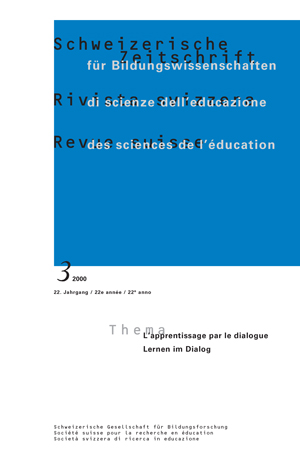Interactive Minds – A Paradigm for the Study of the Social-Interactive Nature of Human Cognition and its Lifespan Development
DOI:
https://doi.org/10.24452/sjer.22.3.4591Abstract
After a brief review of historical and contemporary trends in the study of the social-interactive nature of cognition, a definition of the interactive minds paradigm is presented. Cognition is social-interactive in nature in at least three respects (a) its cultural evolution as well as its ontogeny, (b) its activation and application, and (c) its recognition. But is it true that two heads are better than one? An empirical interactive minds paradigm was developed and tested using the sample case of wisdom-related performance. Five performance settings were developed which differed in the ratio of individual and interactive cognition and its ecological relevance. Results revealed that the condition combining individual and interactive cognition, that is, dialogue and appraisal, was most facilitative for the activation of wisdom-related knowledge and judgment. Thus, not any interactive cognition seems to be facilitative but rather a sequential combination of both individual as well as interactive cognition.
Downloads
Downloads
Published
Issue
Section
License
Copyright (c) 2000 Ursula M. Staudinger, Markus Joos

This work is licensed under a Creative Commons Attribution 4.0 International License.



